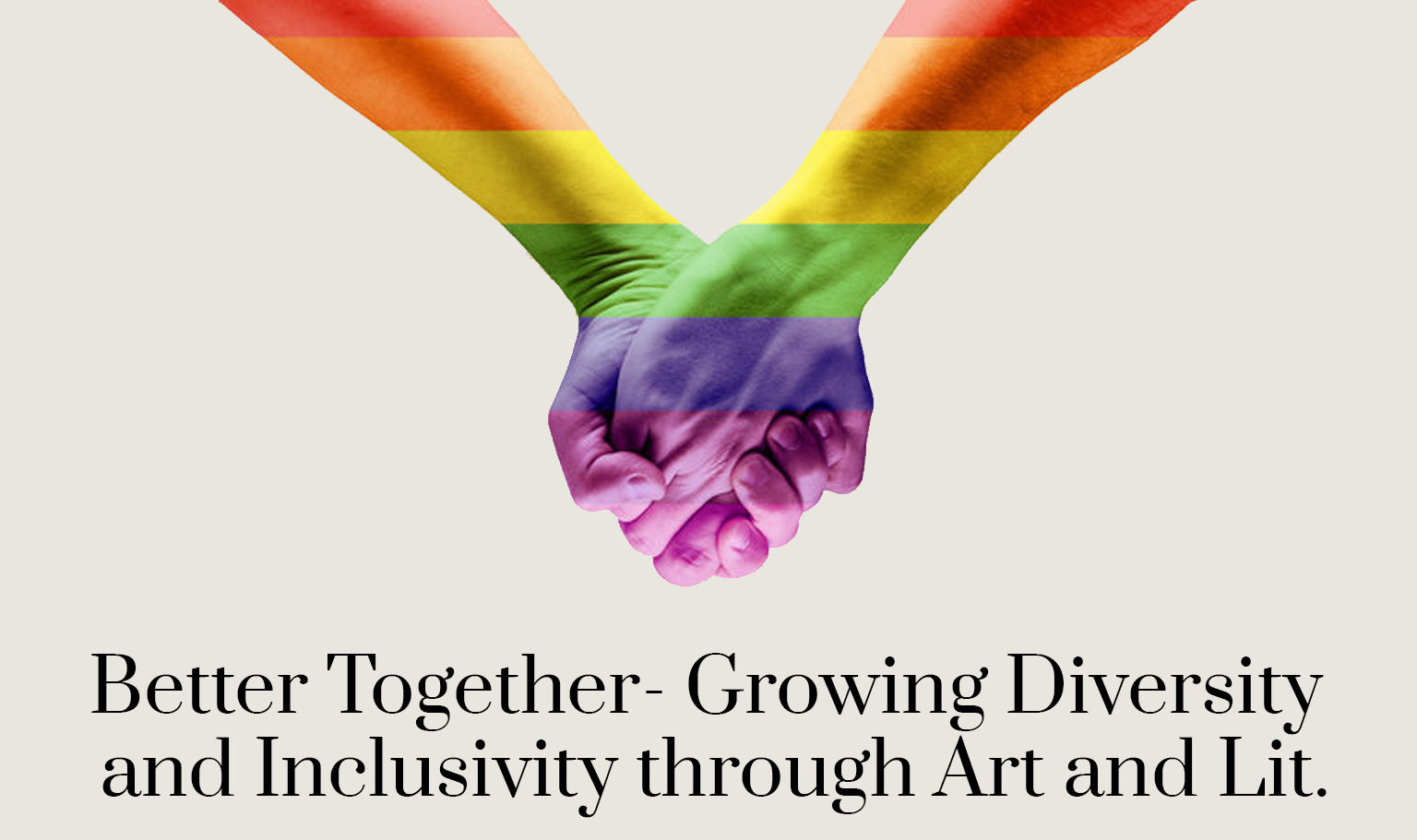

Better Together – Growing Diversity & Inclusivity through Art & Lit
AAKASH MEHROTRA is a management consultant working in financial technology, but his experiences in life extends far beyond this. As part of the LGBTQ community, he has had to overcome not just prejudices and discrimination that we all know to be prevalent in our society, but also the less-discussed issues of mental health. With a “if not me, who will talk about us?” attitude, he writes down here the vitality of more dialogues, discussions and literature on diversity and inclusion that we all need to pave way for.
Strides forward, through art and literature
He looks back to 2016; he had completed his first novel ‘The Other Guy’, a gay romance story waiting to be made into a book at a time when sex between two men was criminalized. Some of his friends asked him to reconsider and the replies he got from some literary agents and publishing houses cemented their views. He started questioning himself but when Leadstart Publishing picked the manuscript, it signaled to him the turning tide of change.
Though much remains to be done, 2022 is nevertheless many strides forward from 2016. Acceptance of the LGBT identity is still to become part of mainstream Indian society, but the literary and the art circle has started to make moves to right the historic wrongs meted out to the community. The expression of its deeply seared human experience of queer folks have slowly but steadily taken wings in art, cinema, and literature.
And though reminders of the discrimination and acts of violence that queer folks have seen for centuries are everywhere, Aakash remain optimistic of the change. These reminders are symptomatic of deep-rooted structures of discrimination that mark our everyday lives. And art and literature are not just healers to the ones discriminated, but also mirror to the larger society to the deep rooted issues that remain, wounds that have not been healed, and the prejudice and collective indifference that enable such discrimination and violence. And the fact that art and literature has taken to tell these stories makes me optimistic. The change is there. This discrimination and violence is no more invisible, the community has started expressing itself, and the acceptance of the society will come sooner than later.
Delving deeper into queer issues
Aakash had many questions when he started writing ‘The Other Guy’. The biggest was about placing the characters in a context which everyone could relate to, without the background of set norms and stereotypes. It was to show love as an expression, defined only by human experience. Now, when working on his second novel, he knows he can bring forth some deeper issues associated with the queer folks like abuse and mental health, and perhaps shows queer lives in a different setting, delving into issues more than their sexual identity, or how their sexual identity shapes other aspects of their lives. It was to give deeper shades to their sexuality.
He strongly believes that his words are not just his outlet, they are an outlet to an entire community. Everyone should be able to identify with his words, or find answers in them. Coming from the community and having personally dealt with those moments of heightened anxiety, and feelings of isolation and pain that comes with keeping their sexuality a secret, his words could perhaps heal some.
Power & importance of inclusive storytelling
Inclusive literature and the arts play a significant role in fostering queer communities. Growing up, he did not have any stories to relate to. Stories that explained some complexities, stories that could tell him who he really was, stories that could have eased all the self-questioning and self-doubt. But the generations now should not have to live that. They should have art and stories that represent them, that they could call their own, relate to, retell and hold onto for answers.
And this thought inspired Aakash enough to propel him to write, engage and express more. With stories, one can shape cultures, evoke discussions, and even nurture ideas. We can’t just let a community remain hidden and forbidden. We can’t let a community bear the heavy burden of aggression, pain and anxiety, seated within, and compelled to hide their emotions, for the society has not been conditioned to look beyond what they define as norms.
So when he sits down to write his next novel, he thinks of Bernadine Evaristo, best known for her Booker Prize-winning novel Girl, Woman, Other, words “literature has the ability to connect us to each other and foster and express our shared humanity.”
